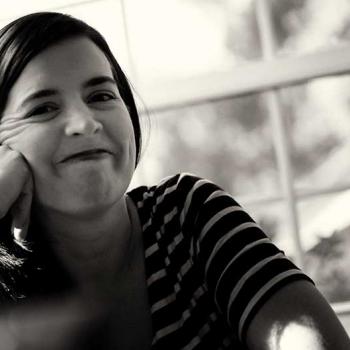 “The right word at the right time can save a person’s life the same way a cruel or a careless word can open a trapdoor that sends a person right down…When God was speaking us into existence creating us in God’s own image, God planted the Word inside of us. The whole universe of God’s life-giving speech is embedded in us as surely as our bones and our breath.”
“The right word at the right time can save a person’s life the same way a cruel or a careless word can open a trapdoor that sends a person right down…When God was speaking us into existence creating us in God’s own image, God planted the Word inside of us. The whole universe of God’s life-giving speech is embedded in us as surely as our bones and our breath.”
-Barbara Brown Taylor, Duke University Chapel, 9/2/12
A few years ago as I began stepping out of depression, I found a blank notebook in a dumpster and decided to use it to make a poetry anthology. At the time, poems were an important part of my healing, offering me encouragement in a language more sturdy than the airy philosophy I was reading. But it’s not that poems brought healing to me by their own inherent strength. No: it was more like meeting a great cloud of witnesses—each poet sharing their breath until I could start breathing again, sharing their words until I could find and speak from my own heart. My experience was captured in this poem by Mary Oliver:
I want to write something
so simply
about love
or about pain
that even
as you are reading
you feel it
and as you read
you keep feeling it
and though it be my story
it will be common,
though it be singular
it will be known to you
so that by the end
you will think—
no, you will realize—
that it was all the while
yourself arranging the words,
that it was all the time
words that you yourself,
out of your heart
had been saying.
“I Want to Write Something So Simply,” in Evidence
And as I have read these poems, as I’ve rehearsed their words and the experiences they contained, they have strengthened my own consciousness and sensitized me to my life in a new way: David Bottoms introduced me to hidden grief; Jane Hirshfield gave me the courage to be more openhearted; Gerard Manley Hopkins helped me see and celebrate the Spirit-soaked world around me. “The soul projects itself outwards into created acts in order to understand itself,” Meister Eckhart said, and in the slow and confusing process of healing, poems can be a medium for greater self-understanding, hope, and even prayer.
This might sound spiritual, and that’s because it is: words are rooted in the deepest levels of ourselves. Without them, we can’t communicate or approach intimacy, we can’t think, we can’t speak to one another through these computer screens. Truly, in the words of Rev. Taylor, “the whole universe of God’s life-giving speech is embedded in us as surely as our bones and our breath,” and the words of poets can bring us closer to that Word sustaining the living world.
Now, I’m now managing social media for Fuller. There are days when I’ve scanned so many posts and headlines that my head feels like a smooth pebble skipping over the surface of my screen. There’s so much content—so many tweets and texts and aphorisms—that when I turn off the computer, my mind keeps scrolling through its own news feed of desires and fears. With this kind of hyper-publication, it’s no wonder that it’s difficult to hear God’s voice, or even put our phones down long enough to hear our own hearts. Like Marie Howe in her poem “Prayer,” there are days I’m so scattered prayer seems impossible:
Every day I want to speak with you. And every day something more important
calls for my attention—the drugstore, the beauty products, the luggage
I need to buy for the trip.
Even now I can hardly sit here
among the falling piles of paper and clothing, the garbage trucks outside
already screeching and banging.
The mystics say you are as close as my own breath.
Why do I flee from you?
My days and nights pour through me like complaints
and become a story I forgot to tell.
Help me. Even as I write these words I am planning
to rise from the chair as soon as I finish this sentence.
“Prayer,” in The Kingdom of Ordinary Time
This is why I think poetry is so important: it’s a form of language that resists easy digestion and forces us past scattered thinking into something deeper. It is only by slowing down our bodies and whirling minds that can we begin to understand what poems mean. And when the poem has direct and clear language that seeks to get out of the way of its subject, when the poem’s attention is directed towards God and the shared spiritual experiences sustaining our days, then our minds descend to those deeper levels of comprehension where we drink in wellsprings of life.
So what could this mean for a church setting? How do pastors use poetry? How does a congregation? We can start by reading them. We can wrestle through the meaning of a poem in community. Maybe you commit to reading one with each sermon. Maybe you check out a few books until you find a poet that you enjoy. However you start, know this: poetry clears our perception, give us words to speak in the darkest days of our lives, creates a space inside us where prayer can be possible again.
Michael Wright has a Masters in Theology and the Arts from Fuller Seminary where he manages social media and writes for FULLER Magazine. He is an advocate for artists incorporating their faith in their work and for churches trying to understand how to approach the arts. Find more at The Commonplace Book and on Twitter @mjeffreywright.












